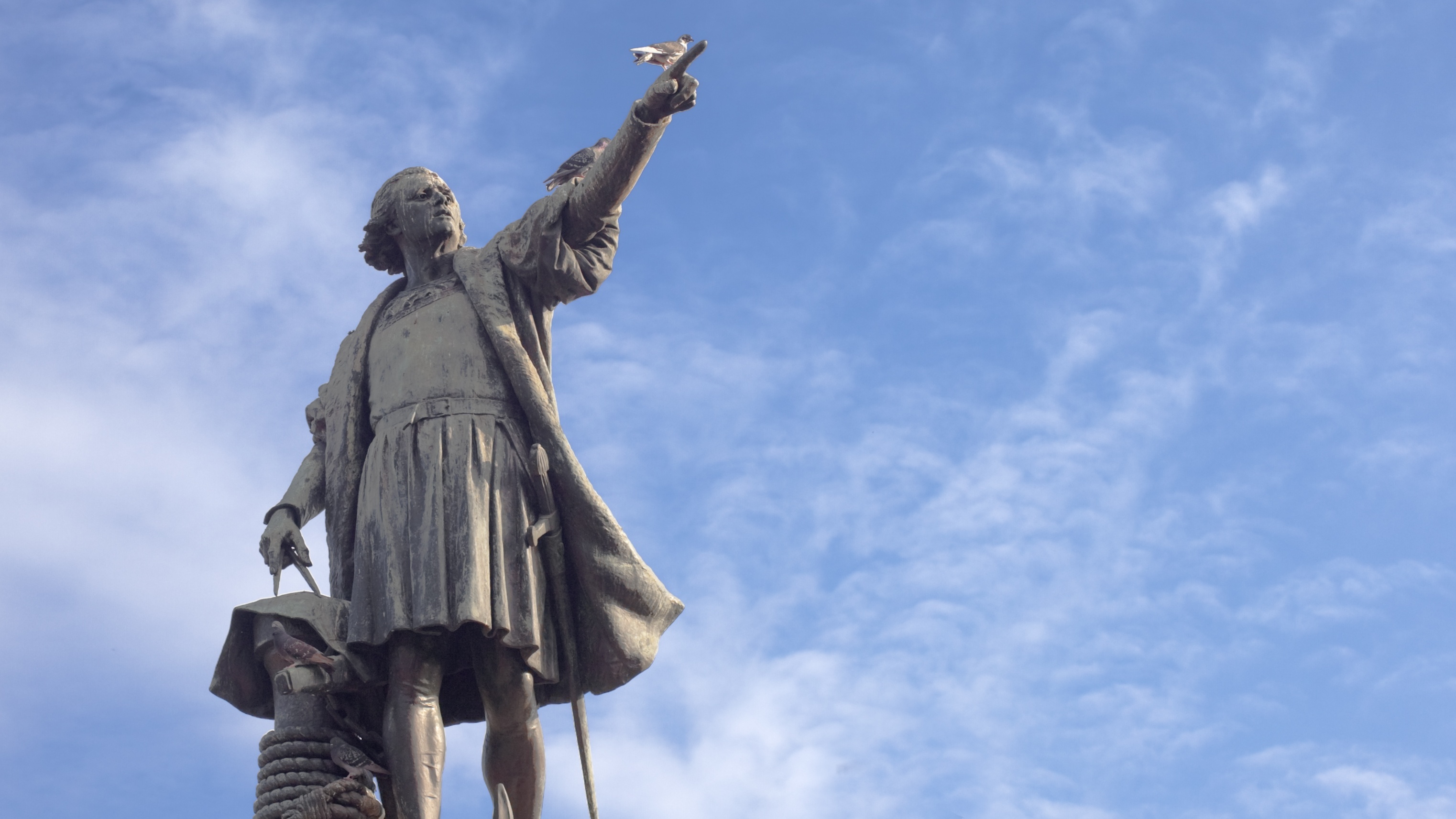A statue of Christopher Columbus in Mexico City will be replaced with a sculpture of an Indigenous woman, following protests from residents.
Although local officials said the statue was being removed for restoration, it will not return to its site and will instead be relocated to Parque América in another neighborhood, Hyperallergic reports. Taking its place will be a sculpture of an Olmec woman created by a Mexican artist to honor the country's native people.
The sculpture was removed in 2020 from the roundabout at the Paseo de la Reforma, The New York Times reports. The metal barriers surrounding the statue had been covered in Spanish graffiti, which translated to "Christopher Columbus killer!! We've already knocked him down!!"
The new statue is set to go up on Día de la Raza, an annual national celebration of the diverse cultures in Latin America, which falls on Oct. 12. The day is also recognized as when Columbus arrived to the Americas in 1492.
The announcement, made by Mayor Claudia Sheinbaum, came on the International Day of the Indigenous Woman on Saturday.
“We owe it to them. We exist because of them,” she said. “It is the history of our country and our homeland.”
The Columbus statue received stark criticism from residents amid protests for the removal of historic white confederalists in the United States. People have also cited Columbus' travels as a cause of the genocide of many Indigenous people.
In the U.S., many Columbus statues were toppled over, according to The New York Times.
Pedro Reyes, the creator of the new Olmec statue, acknowledged the need to reassess the meaning of such monuments.
"Statues of colonizers who subjected, by sword and by disease, the inhabitants of this and other continents, are coming down around the world," Reyes said. “It has taken us 500 years to change the focus, and today we understand that it wasn’t a ‘discovery,’ it was an invasion.”
Local officials also admitted it was "time to reflect on Columbus' legacy."
Additionally, Reyes said he was inspired to create the statute by the Nahuatl word "tlalli," which means Earth.
“It’s such a beautiful word that it inspired me to create an allegory,” he said. “I asked myself: What form could this word take? Historically, representations of the Earth are feminine, and that’s why my sculpture is a woman.”
According to Hyperallergic, roughly 15% of Mexico's population is Indigenous.
In the United States, many states have since recognized Indigenous Peoples' Day rather than Columbus Day.
